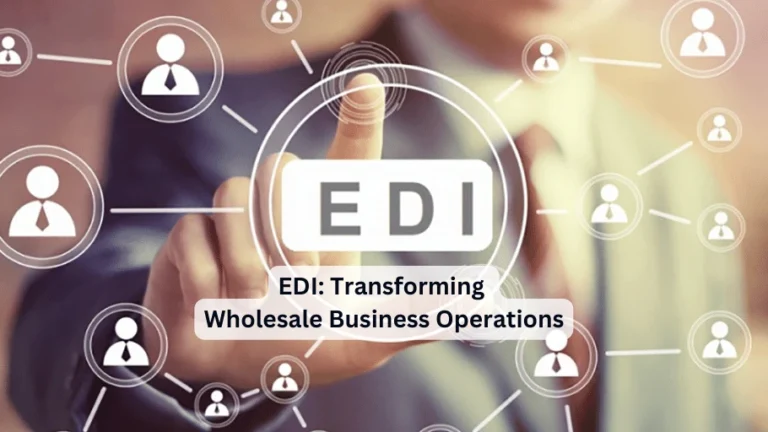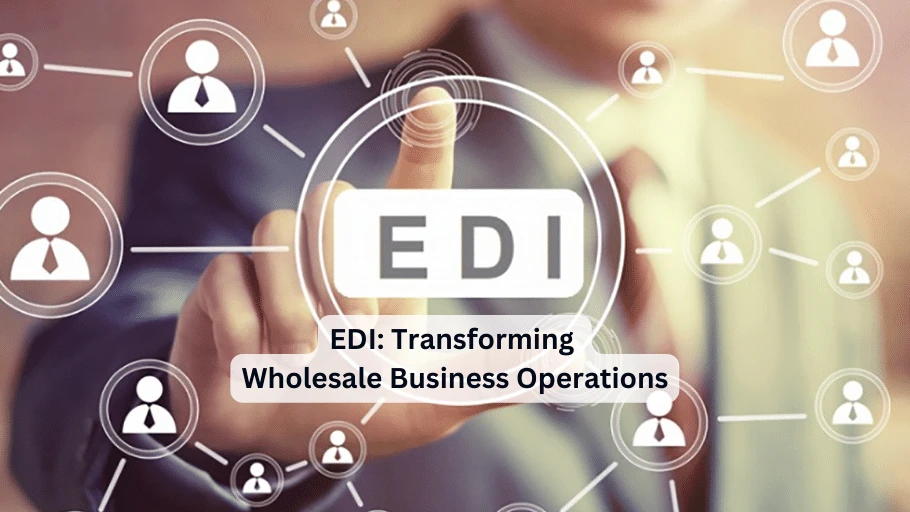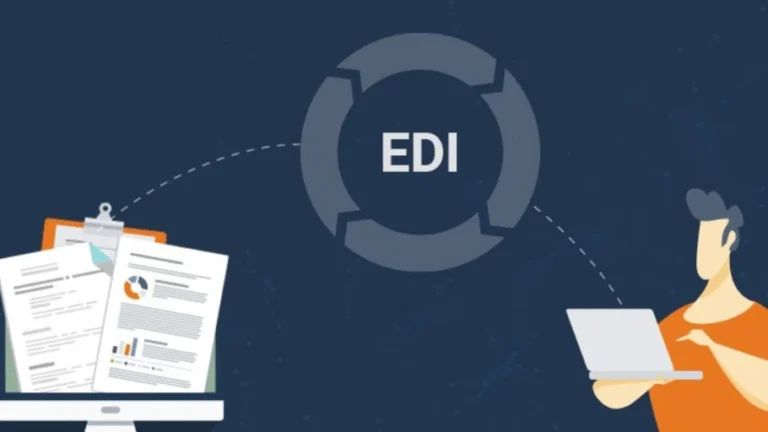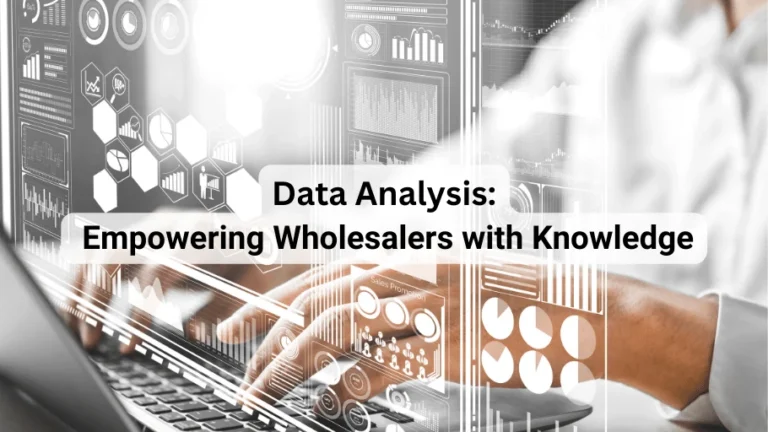Electronic Data Interchange (EDI) enables seamless communication and data exchange between wholesalers and trading partners. It replaces the traditional paper-based communication methods with a more efficient digital system.
Looking to get started with EDI wholesale but are feeling unsure? This guide will provide you with a comprehensive understanding of EDI.

What is Electronic Data Interchange (EDI)?
EDI is the digital exchange of business documents between trading partners in a standardized format. For wholesalers, trading partners can include retailers, logistics, or suppliers.
EDI replaces paper-based communication, such as faxes or mail, with an automated system. EDI allows for the secure transfer of various business documents directly between computer systems. This can include orders, invoices, shipping notices, and more.
EDI Automation vs Web-based EDI
EDI operates in either an automated or manual format.
We explore the differences between these two formats:
EDI Automation
EDI automation involves the use of technology to automate the exchange of data and documents between trading partners’ back-office applications.
Here are the key aspects of EDI automation:
Integration with Business Systems
Streamlined Workflows
Scalability and Handling Large Volumes
System-to-System Communication
Web-based EDI
Web-based EDI uses a web portal interface for the exchange of business documents between trading partners. This eliminates the need for specialized software or infrastructure.
Here are the key aspects of web-based EDI:
Web Portal Interface
Web-based EDI provides a user-friendly web portal interface for accessing and managing transactions. It eliminates the need for specialized software and allows users to access EDI functionalities through a web browser.
Accessibility and Collaboration
Cost-Effectiveness and Easy Implementation
Flexibility and Remote Work
Security and Compliance
Why Wholesalers Need EDI
Streamlined Operations
Improved Accuracy
Faster Order Processing
Cost Savings
Enhanced Collaboration
Implementing EDI for Wholesale Operations
Assess Your Business Needs
Select an EDI Provider
Plan and Prepare
Test
Train Your Team
Establish Trading Partner Connections
Check
Stay Updated with Industry Standards
Streamline Operations with Salesorder ERP Software
Salesorder offers a comprehensive ERP for wholesalers. Our ERP software eliminates sales effort, manages inventory accuracy, and delivers the best possible business intelligence (BI).
Zenbridge, our partner company, manages connectivity to EDI. Zenbridge offers a high-quality EDI that is affordable. The onboarding process is simple, allowing you to go live with ease.
Get in touch to discuss our ERP software and EDI connectivity.





